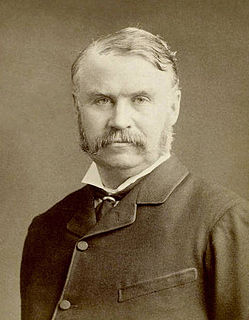A Quote by Henry David Thoreau
Most events recorded in history are more remarkable than important, like eclipses of the sun and moon, by which all are attracted,but whose effects no one takes the trouble to calculate.
Related Quotes
The man is the captain, the women is the lieutenant and the kids are the soldiers. Like right now I'm not home with my kids. I teach my Wisdom so when I'm not there she takes care of the shorties. Just like the sun shines on the moon, and when the earth rotates and the moon is over here, and the sun is over here, and the sun and its shaded on the side we get light from the moon, showing and proving how we're symbolic to the stars and things of that nature.
Although the semicircle of the Moon is placed above the circle of the Sun and would appear to be superior, nevertheless we know that the Sun is ruler and King. We see that the Moon in her shape and her proximity rivals the Sun with her grandeur, which is apparent to ordinary men, yet the face, or a semi-sphere of the Moon, always reflects the light of the Sun.
It is thus that the generality of mankind, whose lot is ignorance, attributes to the Divinity, not only the unusual effects which strike them, but moreover the most simple events, of which the causes are the most simple to understand by whomever is able to study them. In a word, man has always respected unknown causes, surprising effects that his ignorance kept him from unraveling. It was on this debris of nature that man raised the imaginary colossus of the Divinity.
The business schools could do a better job teaching face-to-face management, the actual work of organizing and helping along the efforts of others in the organization. The more quantitative disciplines have gotten more attention, often more research dollars. Areas like organizational science or, even mushier, leadership have had more trouble settling on what it's important to teach, and how. It's rather like strategy itself, which as I argue in the book, has had trouble through most of its history figuring out how to incorporate people, their motivation and ability, into its calculations.
What initially attracted me to The Seventh Seal was that it had values and characteristics which I was familiar with in other art forms, most notably, the European novel and certain forms on English drama, and indeed, in relation to my rather academic interest in history -- not "history" in the normal sense, but history as a form of entertainment . It might be a very unfashionable view but I believe that history is an amazing bank or reserve area of plots, characterisations, extraordinary events, etc.
The ocean, whose tides respond, like women's menses, to the pull of the moon, the ocean which corresponds to the amniotic fluid in which human life begins, the ocean on whose surface vessels (personified as female) can ride but in whose depth sailors meet their death and monsters conceal themselves... it is unstable and threatening as the earth is not; it spawns new life daily, yet swallows up lives; it is changeable like the moon, unregulated, yet indestructible and eternal.
It is, however, a most astonishing but incontestable fact, that the history of the evolution of man as yet constitutes no part of general education. Indeed, our so-called "educated classes" are to this day in total ignorance of the most important circumstances and the most remarkable phenomena which Anthropogeny has brought to light.
Anyone, however, who has had dealings with dates knows that they are worse than elusive, they are perverse. Events do not happen at the right time, nor in their proper sequence. That sense of harmony with place and season which is so strong in the historian--if he be a readable historian--is lamentably lacking in history, which takes no pains to verify his most convincing statements.



































